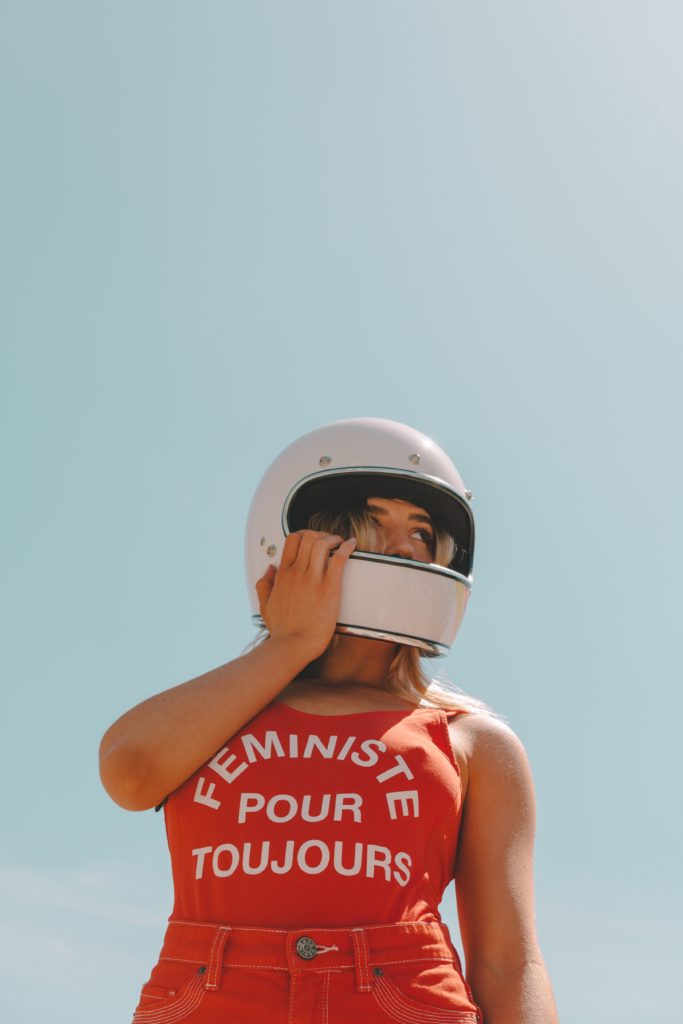
By the time I was 6 years old, I realized that the world cared more about my appearance than what I had to say.
Maybe it was the fairy tales, like Snow White, which reward physical attractiveness in women.
Maybe it was my classmates who incessantly teased me for being “ugly.”
Maybe it was movies or pop-culture. (I mean, it was 1991, when we were just coming from the exercise-crazed 80’s.)
Maybe it was the toy commercials that mostly showed pretty, white, thin, blondes playing with my favorite toys…
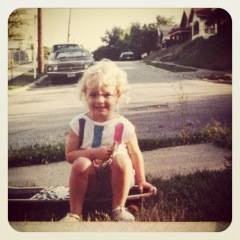
Whatever it was, it impacted my self-esteem. I became one of the 90% of women ages 18–24 are unhappy with at least one body part.
I was an A student, but by the time I was in the 6th grade, I started dumbing myself down to make boys feel more comfortable.
By high school, I was dating douche bags that treated me like shit.
I fried my northern-European skin in tanning beds (it was the early 2000’s, after all), exposing me to the threat of skin cancer.
I tried really, really hard to be anorexic and bulimic, but thankfully I loved food too much for any of it to last very long
RELATED: Get your FREE Self-Care/Self-Love Checklist
.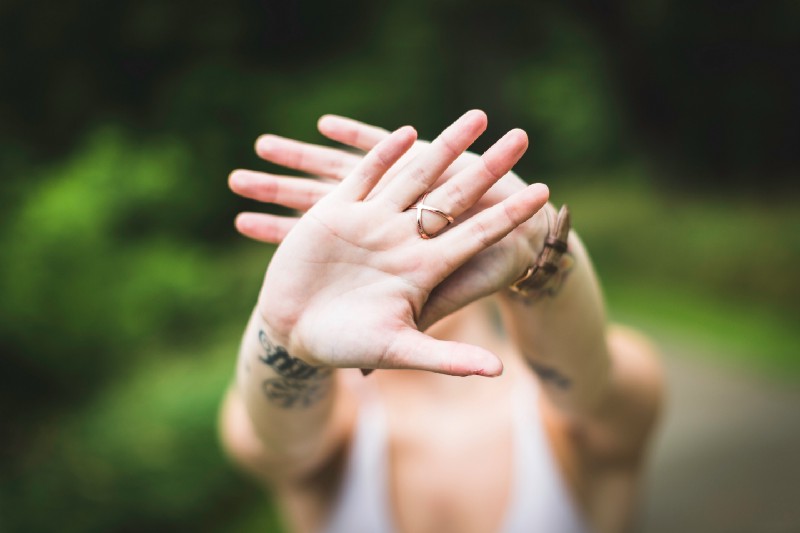
The pursuit of beauty became an obsession for me.
I longed after the illusive thigh gap. I lightened my hair and darkened my skin. I spent thousands of dollars and countless hours perfecting my appearance. And then I got to the workforce where I was repeatedly told that I was “too pretty;” my appearance was micromanaged; and I became the subject of sexual assault, sexual harassment, sexism, and stalking.
“Don’t wear button down shirts around these guys,” a client once advised me. “Their eyes will automatically go to your breasts.”
Really inspiring professional advice from a 50-something white man to a 20-something impressionable woman. (I wish I could say this was the worst, but it wasn’t).
If you’re also a woman, there’s no doubt you can relate.
I thought about this a lot when I started my feminist all-natural skincare company, From Molly With Love. I noticed the lack of diversity in beauty-marketing. I noticed how much this marketing played upon my insecurities. I wanted to do things differently.
So we aimed to show a diverse array of models in our marketing and we eliminated terms like “anti-aging” from our vocabulary. And we constantly put out content that empowers our customers to #endbeautyshaming and create their own beauty standards.
RELATED: How would the world change if you saw yourself as beautiful?
In this Forbes article, Michael R. Solomon asks the very question I pondered when I started my company:
“And how should retailers think about the way they promote beauty products?”
In the few years since I started From Molly With Love, I have been encouraged by how much our message resonates with customers.
Since that time, Fenty Beauty has disrupted the cosmetics industry by making foundation and concealer that works for women of color. (Doesn’t this seem like it should be a baseline expectation instead of something extraordinary?).
Allure Magazine declared their distaste for the word “anti-aging.” And the body positivity movement has shattered the skewed perception that “thin is in.”
When I tell people about our mission to end beauty shaming, many people chide me: “That’s a tall order to try to disrupt beauty standards.” As if I didn’t already know… But I am encouraged by the progress we’ve collectively made over the last couple of years.
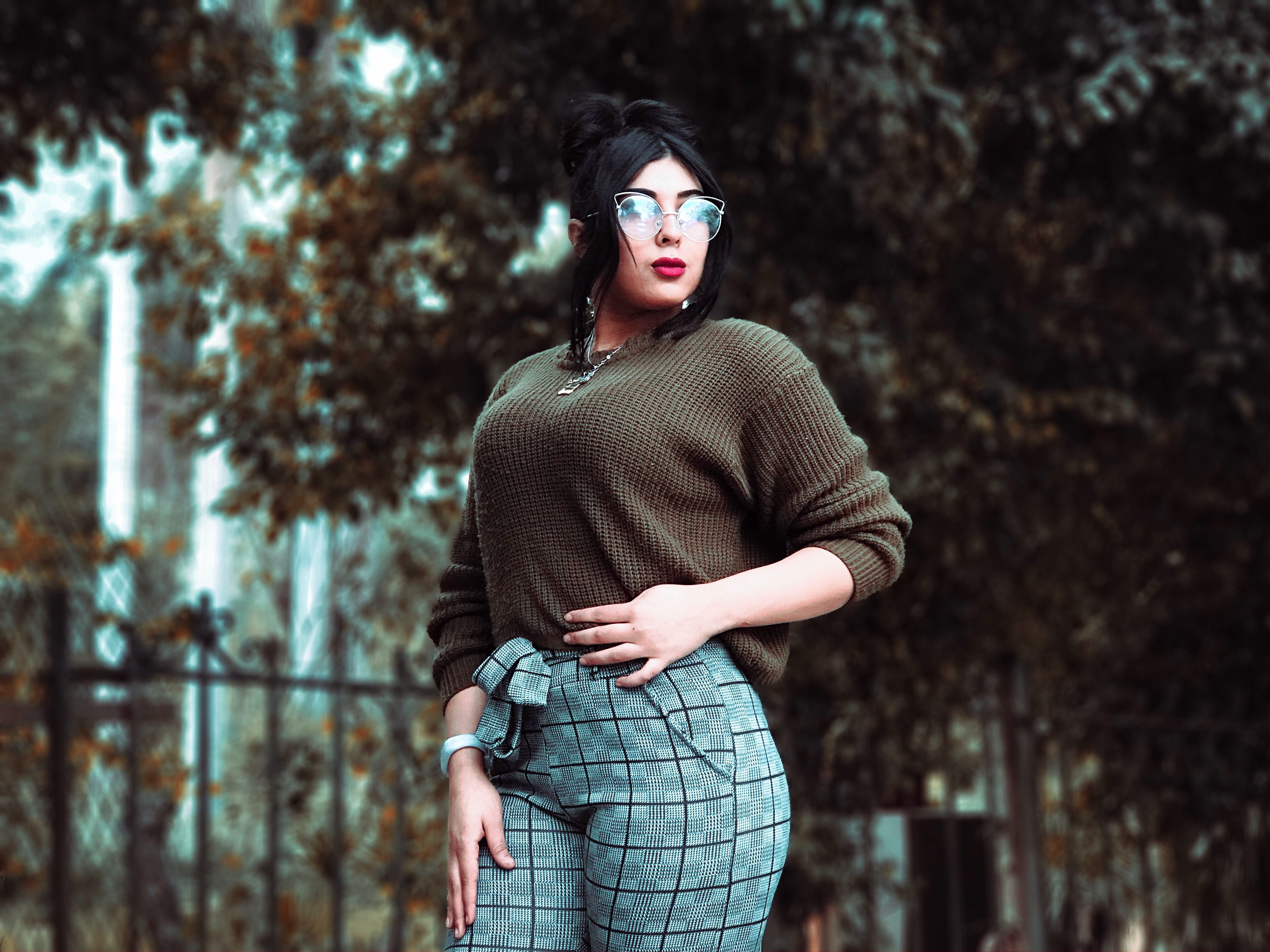
So I encourage you to question the small boxes that women have been asked to fit into.
I encourage you to flip the bird to patriarchal beauty standards. And to even be a “beauty rebel,” a term coined by Allure writer Lexi Novak.
Novak writes:
“I still can’t hear my boyfriend say the word “pretty” in relation to someone else without feeling at least a little insecure, as if there were a limited quantity of pretty to go around, and giving even the tiniest bit to another person would mean he was giving less to me. How petty. How anti-feminist. It’s a rocky climate for women, especially now. Especially now. And as the scope of what’s actually important focuses in, it becomes increasingly clear how these rules of attraction are just divisive, well, bullshit.”
She goes on to say,
“We’re taught to admire conventional this or classic that. Which is exactly why the rebel — the beauty rebel — is owning the moment. She’s bucking rules and flipping off norms. She’s saying, “Yeah, my ears stick out, and…?” She’s saying, “I buzz my hair and shave my brows, and I’ve never felt prettier.” She’s saying, “I was born male, and tell me why that matters.”
Together, we can begin to make change. The next generation of women are counting on us. #endbeautyshaming


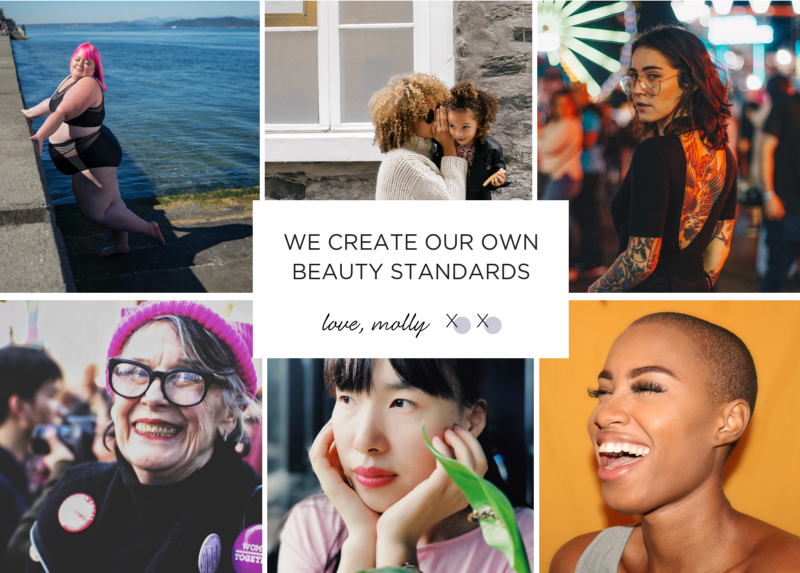
Love your philosophy. you say so much that is meaningful. Thank you.